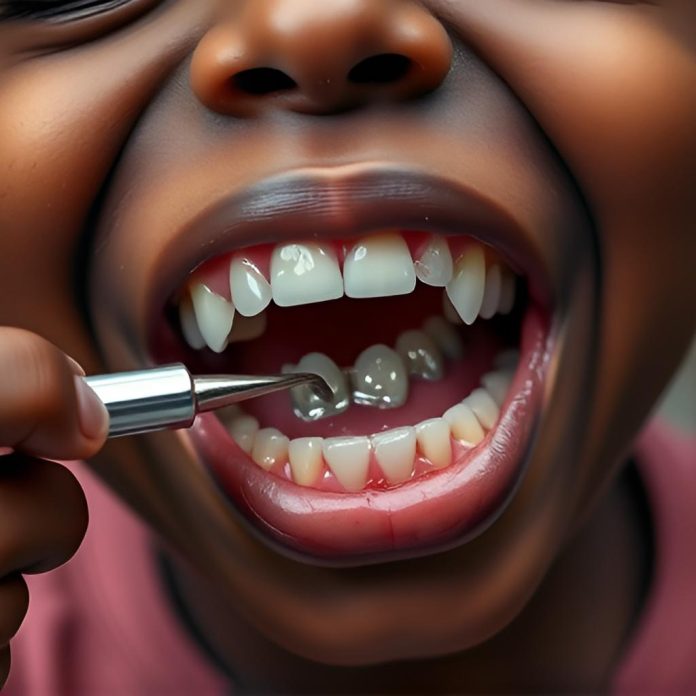Author: Kwame Ofori || AKO Foundation
Accra, Ghana—Mercury, the most volatile of heavy metals, is posing a grave threat to public health and the environment through its continued use in dental amalgam.
Ghana must take immediate action to phase out dental amalgam in line with the provisions of the Minamata Convention on Mercury to safeguard its citizens, particularly children, pregnant women, and breastfeeding mothers.
Dental amalgam contains 50% mercury, making it a primitive pollutant with disastrous consequences.
Mercury vapor from amalgam not only endangers dental patients but also toxifies dental offices, placing dental workers—especially young women—at significant risk.
The time has come for Ghana to join the global movement towards mercury-free dentistry.
Key Facts About Dental Amalgam
1. Environmental Harm: Mercury from dental amalgam contaminates air, water, and soil, contributing to widespread ecological damage that Ghana’s resources and technology are ill-equipped to manage.
2. Health Risks: Dental amalgam is harmful to children, pregnant women, breastfeeding mothers, and dental workers, who face chronic exposure to mercury vapors in clinics.
3. Outdated Technology:Amalgam is a relic of 19th-century dentistry that is not evidence-based and often leads to tooth loss and poor oral health outcomes in later life.
Call to Action: Ghana’s Obligations Under the Minamata Convention
The Minamata Convention on Mercury, ratified by Ghana, mandates the phase-out of dental amalgam use to protect public health and the environment. We urge the Government of Ghana to:
1. Cease Use for Vulnerable Groups: Ban the use of dental amalgam immediately for children, pregnant women, and breastfeeding mothers.
2. End Importation: Phase out the importation of dental amalgam by 2025, ensuring that Ghana is no longer a dumping ground for hazardous materials.
3. Complete Phase-Out:Eliminate the use of dental amalgam entirely by 2026, aligning with international standards and protecting future generations.
The Future of Dentistry in Ghana: Mercury-Free Clinics
Dental clinics across the country must transition to mercury-free practices. Modern, evidence-based approaches like Minimum Intervention Dentistry (MID) prioritize tooth preservation and lifelong oral health.
Mercury-free dentistry not only reduces environmental harm but also ensures the safety of dental workers and patients.
As the European Union has already committed to banning dental amalgam by January 2025, Ghana must not fall behind. We cannot allow our continent to remain a dumping ground for outdated and hazardous dental practices.
Join the Movement for a Mercury-Free Ghana
We call on the Government of Ghana to act decisively and demonstrate its commitment to public health and environmental sustainability.
By phasing out dental amalgam, Ghana can protect its citizens, fulfill its international obligations, and lead the way for a healthier, mercury-free future.
Together, we can make mercury-free dentistry a reality.








































